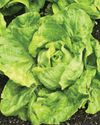
Before I describe the process of sustainably managing parasites in goats, let's define sustainable in this context. The term "sustainable" is often used in agriculture as a synonym for organic. That's not the case here. Rather, I literally mean a program that can be sustained.
You see, a huge problem in parasite management is that the products we use to control parasites - worms, especially often become ineffective over time largely because of misuse and overuse.
A sustainable program, for our purposes, is defined as finding a balance of actively working to keep a herd healthy, while also avoiding practices that promote resistance to chemical wormers.
Resistance is built every single time we treat an animal for parasites. As such, knowing when to treat and when not to is key to finding a healthy balance. The absolute worst thing you can do is set and adhere to a regular schedule of worming your goats.
We diagnose exactly how "wormy" the animals in our herd are (and therefore whether treatment is recommended) by using three tools: something called FAMACHA scoring, fecal flotations/egg counts and body condition scoring. Used alone, any one of these markers is inadequate for gauging parasites. Used together, however, they provide the best picture of what you are dealing with and how/whether to treat it.
FAMACHA
This story is from the Goat-101-24 edition of Hobby Farms.
Start your 7-day Magzter GOLD free trial to access thousands of curated premium stories, and 9,000+ magazines and newspapers.
Already a subscriber ? Sign In
This story is from the Goat-101-24 edition of Hobby Farms.
Start your 7-day Magzter GOLD free trial to access thousands of curated premium stories, and 9,000+ magazines and newspapers.
Already a subscriber? Sign In

The RISE of Opportunist WEEDS
Be prepared to see increasing changes in weeds we fight, such as poison hemlock and poison ivy, and in the crops we grow.

LIVESTOCK Health
Prepare yourself for how to spot symptoms of illness in your farm animals so that you can get them help before it's too late.

CUT FLOWER Farming
If you're considering growing flowers for sale, brush up on these five key things to know before diving in.

WINTER Survival
Keep your land, animals and yourself in good shape this winter with this helpful advice.

COVERAGE CONCERNS
Avoid common insurance mistakes for rural and hobby farm businesses.

FARMER'S GUIDE Berries
Set the stage for tasty strawberries, blueberries and brambles with these soil-boosting garden tips.

Preconditioning CALVES
Follow our step-by-step guide to get more money for your calves.

Soil Conservation
Often, outside of having a specific problem that needs to be addressed, soil conservation isn't something every farmer readily thinks about. Yet conserving the soil should be at or near the top of every farmer owner or manager's list of concerns because absent the prevention of soil erosion, we have the opportunity for another dust bowl.

Year-Round Lettuce & Salad Mixes
It's easy to think of salad greens as just a spring- or fall-garden crop, but it's possible to enjoy freshly harvested lettuces, mustards and more from your own garden year-round.

Barn Improvements
Days are never long enough for a farmer. From dawn to well into the night, tasks arise that often require immediate action. Having to search for tools or equipment is an enormous time waster and incredibly frustrating when you can't find what you need, especially when you know you have it.